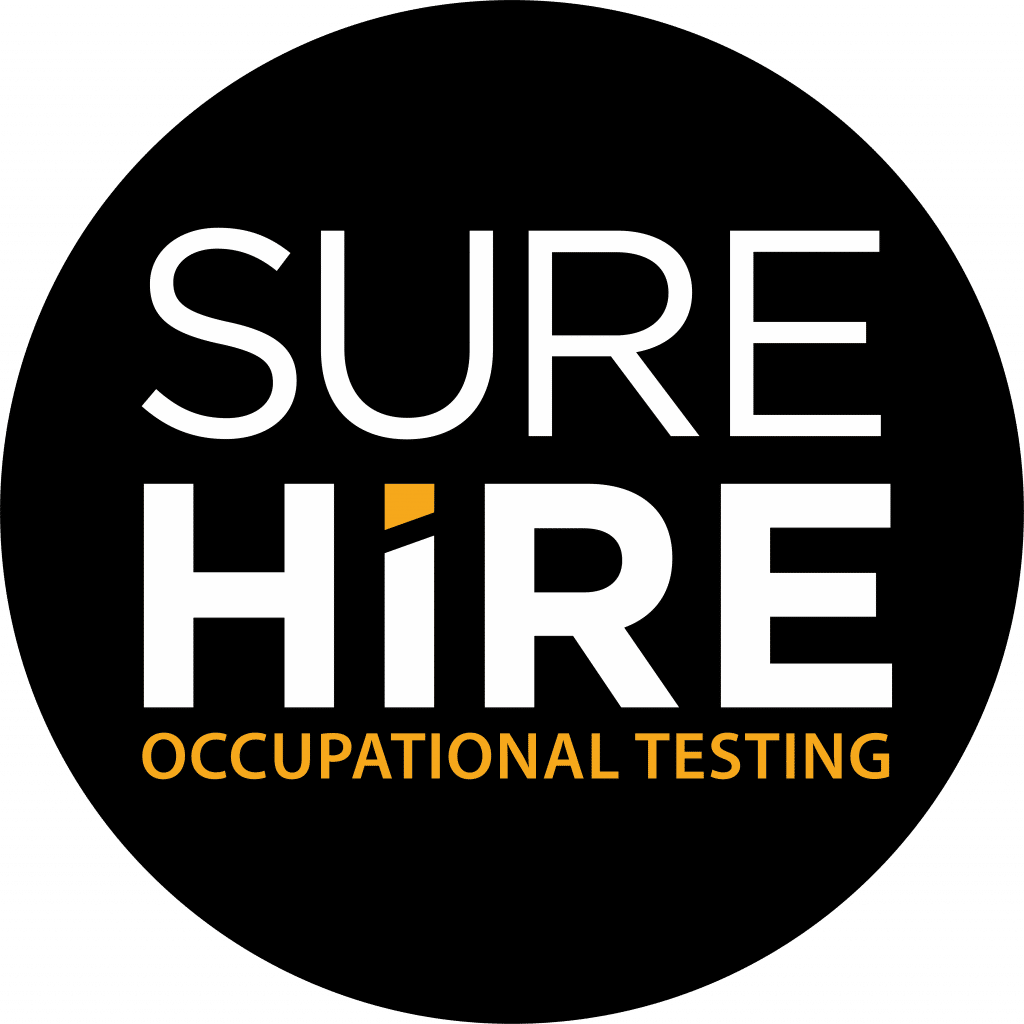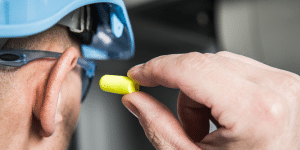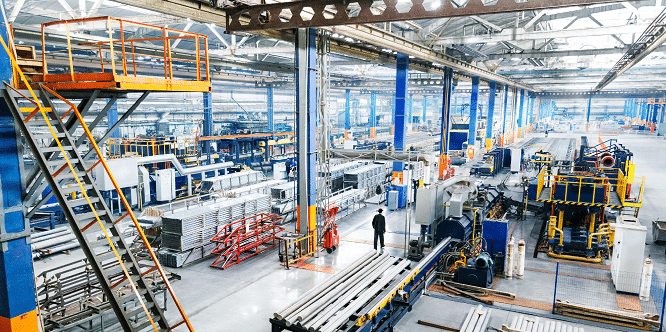TAKEAWAY: In this case study, we will explore how manufacturing companies can use various types of occupational testing to assess job applicants, including statistics that show how that can reduce your Total Recordable Incident Rate over the long term.
Jump Ahead
Manufacturing can be a dangerous business. In any given year, accounting for 15 to 20 percent of all non-fatal injuries in the private sector. Manufacturing companies operate in high-risk environments, requiring skilled personnel to safely handle complex machinery and hazardous materials. Slips, trips and falls, repetitive strain and overexertion, are all common injuries in manufacturing, but getting caught or struck by machinery is one of the highest risks for these workers.
Because of these risks, the selection process for new employees in this sector is critical. It directly impacts the safety of all workers and your company’s productivity, efficiency, and reputation. One way manufacturing companies can assess job applicants’ suitability for a position is through various types of occupational testing.
By understanding where an applicant stands before they get on the job, employers can optimize their workforce, accommodate roles for their workers, and reduce the potential for accidents on the job.
Bona Fide Occupational Requirements for Occupational Testing
Employer best practice in pre-employment testing should ensure the testing is reasonably necessary and connected to the job. This concept is known as a Bona Fide Occupational Requirement (BFOR) and is required in provinces such as Alberta. In Newfoundland, this is referred to as Good Faith Occupational Requirements.
Occupational Testing
Occupational testing is a process used to evaluate a job applicant’s skills, knowledge, and abilities related to a specific job. It can include aptitude tests, skills assessments, psychological evaluations, fitness to work, and drug and alcohol screening. These tests help companies identify the best candidates for a job and ensure they have the necessary skills to perform the job safely and effectively.

Looking for Occupational Testing Services?
SureHire offers a wide range of pre-employment screening and testing, including drug and alcohol testing, fitness-to-work testing, background checks and behavioural assessments.
Fitness-to-Work Testing
Employers use these types of tests to ensure that a potential new hire is physically and mentally capable of doing the work required and can also be used to assess any necessary accommodations. They need trained professionals in a controlled environment and should focus on activities related to the job.
Aptitude Tests
Aptitude tests assess an individual’s potential to learn specific skills required for the job. Manufacturing companies can use cognitive aptitude tests to evaluate a candidate’s problem-solving skills, spatial awareness, and attention to detail. This type of testing is essential for jobs that require complex problem-solving, such as engineers or machinists.
Skills Assessments
Skills assessments evaluate a candidate’s practical knowledge of the job. Employers can use skills assessments to assess physical abilities, such as a forklift driving test or a manual dexterity test for assembly line workers.
Psychological Evaluations
Psychological evaluations assess a candidate’s personality traits and behavioural tendencies. These tests can benefit positions requiring high-stress tolerance levels, such as emergency responders or plant supervisors. A psychological evaluation can also identify potential behavioural issues impacting an individual’s ability to work safely in a manufacturing environment.
Drug and Alcohol Testing
Pre-employment testing, which includes drug and alcohol testing, can help you manage the risk of workplace substance abuse and the accidents, incidents and absenteeism related to it. This type of screening typically includes an 8-panel drug test that checks for the use of several common drugs of abuse. If required by an employer, this type of testing is generally administered after the offer of employment and before the new employee begins work.
The Benefits of Occupational Testing
Occupational testing provides several critical benefits for manufacturing companies, including:
- Ensuring new hires have the skills and abilities to perform the job safely and effectively.
- Reducing the costs associated with training new employees by identifying individuals with the necessary skills.
- Decreasing the risk of injury by ensuring that new employees are physically capable of handling the job.
- Improving overall safety by identifying behavioural and other issues that could impact an individual’s ability to work safely in a manufacturing environment.
The Link Between Occupational Testing and TRIR
TRIR is a commonly used metric to measure safety performance in the manufacturing industry. It is calculated by taking the number of recordable incidents in a year and multiplying it by 200,000, then dividing it by the total number of hours worked. The TRIR rate is an essential measure of a company’s safety performance, and many manufacturing companies strive to reduce it.
Studies have shown that using occupational testing to assess job applicants can reduce the TRIR rate. For example, a recent study by the Associated Builders and Contractors found that robust substance abuse prevention programs/ policies with provisions for drug and alcohol testing where permitted lead to a 70% reduction in TRIR.
Occupational testing provides manufacturing companies with an effective way to evaluate job applicants’ skills and abilities, reducing the risks associated with new hires. Companies using occupational testing have been shown to have lower TRIR rates, indicating a safer working environment. Manufacturing companies must incorporate occupational testing into their recruitment processes to ensure they hire the best candidates for the job and maintain a safe working environment.

Looking for Occupational Testing Services?
SureHire offers a wide range of pre-employment screening and testing, including drug and alcohol testing, fitness-to-work testing, background checks and behavioural assessments.
You May Also Be Interested In…
- Do You Have Reasonable Suspicion?
 Employers cannot initiate reasonable suspicion testing without first going through the 5-step process. Reasonable suspicion training provides critical information about how to initiate reasonable suspicion testing, including the 5-step process and other tools that employers can use to help manage the misuse of alcohol and drugs in the workplace.
Employers cannot initiate reasonable suspicion testing without first going through the 5-step process. Reasonable suspicion training provides critical information about how to initiate reasonable suspicion testing, including the 5-step process and other tools that employers can use to help manage the misuse of alcohol and drugs in the workplace. - An Employer’s Guide: What You and Your Employees Need to Know About DOT Drug & Alcohol Testing
 When implementing or maintaining DOT Drug & Alcohol testing, there are key areas that employers should consider.
When implementing or maintaining DOT Drug & Alcohol testing, there are key areas that employers should consider. - SureHire Occupational Testing Acquires COHR Health: A Positive Step Towards Safe, Healthy, Productive Workforces and Communities
 We are thrilled to announce that today, May 6, 2024, SureHire Occupational Testing has officially acquired COHR Health, a well-known leader in occupational health services. Read on…
We are thrilled to announce that today, May 6, 2024, SureHire Occupational Testing has officially acquired COHR Health, a well-known leader in occupational health services. Read on… - Occupational Testing Use Case – Mining
 In this case study, we will explore how mining companies can use various types of occupational tests to reduce Total Recordable Incident Rates (TRIR) long term.
In this case study, we will explore how mining companies can use various types of occupational tests to reduce Total Recordable Incident Rates (TRIR) long term. - 9 Strategies to Keep Workers Cool on Drilling Sites During Hot Summer Months
 This article delves into strategies to keep workers cool and safe on drilling sites during the hot summer months.
This article delves into strategies to keep workers cool and safe on drilling sites during the hot summer months. - Hearing Conservation Basics: How to Manage Occupational Noise
 Learn how to proactively mitigate occupational noise risks and help prevent NIHL among workers.
Learn how to proactively mitigate occupational noise risks and help prevent NIHL among workers.

